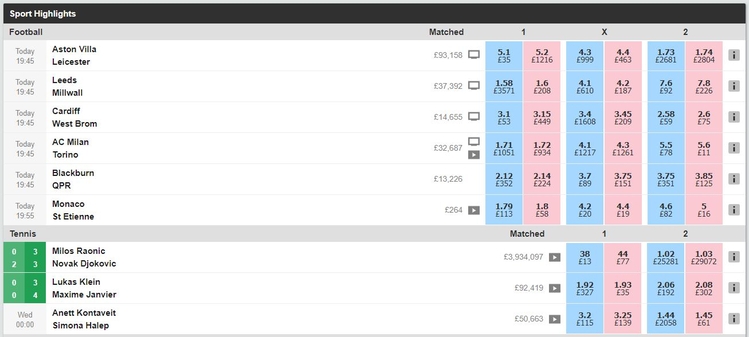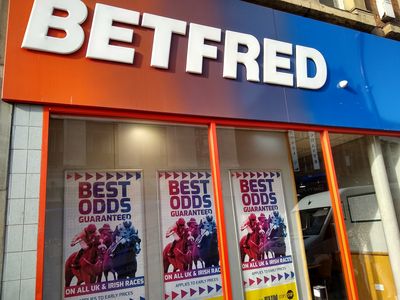 The nature of betting is pretty simple, with punters selecting an outcome that they think will happen and putting money on it doing so with the bookmaker taking the opposite position that it won’t happen. Yet it doesn’t always have to be a matter of thinking positively, given that a few people might be convinced that something will not happen rather than it will.
The nature of betting is pretty simple, with punters selecting an outcome that they think will happen and putting money on it doing so with the bookmaker taking the opposite position that it won’t happen. Yet it doesn’t always have to be a matter of thinking positively, given that a few people might be convinced that something will not happen rather than it will.
An example of this could be betting that a Formula 1 driver will not win a Grand Prix, in spite of everyone in the know suggesting that they’re nailed on to do so.
There are two main ways to bet on something not happening, with the first being the decision to Lay the outcome on a betting exchange. The second choice open to people is to have a look to see if a bookmaker offers the odds themselves, often putting a market such as ‘X Driver To Not Win Grand Prix’. This is really the option that those that don’t really understand how exchange betting works will take, but it’s worth checking the odds of both.
Laying On The Exchange
 Exchange betting can seem like a convoluted and complicated world to anyone that hasn’t taken the time to understand it. Talk of Laying and Backing and strange odds all over the site would be enough to put most people off getting involved with it. It has, however, completely changed the way that the betting industry works and, in many instances, has actually changed the direction of travel for traditional bookmakers away from the norms we were used to.
Exchange betting can seem like a convoluted and complicated world to anyone that hasn’t taken the time to understand it. Talk of Laying and Backing and strange odds all over the site would be enough to put most people off getting involved with it. It has, however, completely changed the way that the betting industry works and, in many instances, has actually changed the direction of travel for traditional bookmakers away from the norms we were used to.
Understanding exchange betting is important for anyone that wants to look for slightly different bets than they’d find with a standard bookie. It’s also not as complex as it might seem at first, with the key thing to do being to get your head around the language that is used on exchange platforms. In essence, Backing something is a bet that it will happen (like most bets with a fixed odds bookie). Laying it is the equivalent of saying that you think anything else will happen. When you lay a bet you are in effect acting as your own micro-bookmaker, providing bets to your peers.
The best and simplest way of explaining the world of exchange betting in clear and concise language is to use horse racing. Imagine two people looking at a race, with Person A thinking that MadeUpHorse will definitely win and Person B being convinced that it definitely won’t, but not being certain about which horse will win. They both place bets on the horse but of differing kinds, with Person A backing MadeUpHorse and Person B Laying it.
The Back bet says, “I think this horse will win.” The Lay Bet says “I think any of the horses in the race apart from MadeUpHorse will win.” If MadeUpHorse wins the race than the Backer wins their bet and the Layer loses theirs. If, however, any of the other horses in the race end up winning it then the Layer wins their bet and the Backer loses theirs. In a nutshell, that’s it. It is, therefore, a way of betting against something without needing to know what you’re betting for.
There are lots of other complications when it comes to exchange betting, including things like liquidity and understand the odds, but in essence all you need to know is that a Back bet is backing something to win an event and Lay betting is the suggestion that something will not be successful. You can Back and Lay a wealth of different things on the exchange, so you’re not just limited to betting on horses or motor race drivers, of course.
What About The Bookie?
 Despite the above explanation, there will doubtless still be some of you confused enough by the world of exchange betting to decide that it isn’t for you. That is totally fine and the most important thing to remember is not to bet on the exchange if you don’t understand what it is that you’re betting on. Instead, you can turn to your traditional bookmaker and see if they offer any odds on the outcome that you’re looking for.
Despite the above explanation, there will doubtless still be some of you confused enough by the world of exchange betting to decide that it isn’t for you. That is totally fine and the most important thing to remember is not to bet on the exchange if you don’t understand what it is that you’re betting on. Instead, you can turn to your traditional bookmaker and see if they offer any odds on the outcome that you’re looking for.
This is always worth doing regardless of your thoughts about the exchange, given that it’s handy to get an idea of the value being offered by traditional bookies. It’s not entirely unusual for them to offer markets that indirectly give you what you want, such as ‘Race Odds Without X Horse’, for example. There’s also the chance that they might directly offer odds on ‘X Horse Not Winning’, if we continue to use the idea of the horse race as our example.
As with betting on the exchange, there will be a wealth of markets in which something like this is offered, even if it’s not as impressive as the amount of things that you can Lay or Back. You might also find that the bookmakers’ odds aren’t as good as those on the exchange, if for no other reason than you can essentially pick and choose your own odds on the exchange and not take the bet if you don’t want. With the bookie, you’re stuck with what they’re offering.
The other option you have with bookmakers nowadays is the ability to request a bet. Whether by social media, text or email, most bookies will give you the option to get in touch with them and ask them to give you odds on whatever it is that you want to bet on. They don’t have to give you any odds, of course, and the ones they give you won’t be particularly good, but it’s at least another option available to you when exploring what bet to place.
The world of betting is set up to be about events happening, so betting on something not happening can feel a little bit like you’re going against the grain. That’s all a case of mindset, though, when you consider that a bet on something happening is, by its very nature, a bet on something else not happening. The joy of modern betting is that there is nearly always a way to place the bet you want if you’re willing to shop around for it.
